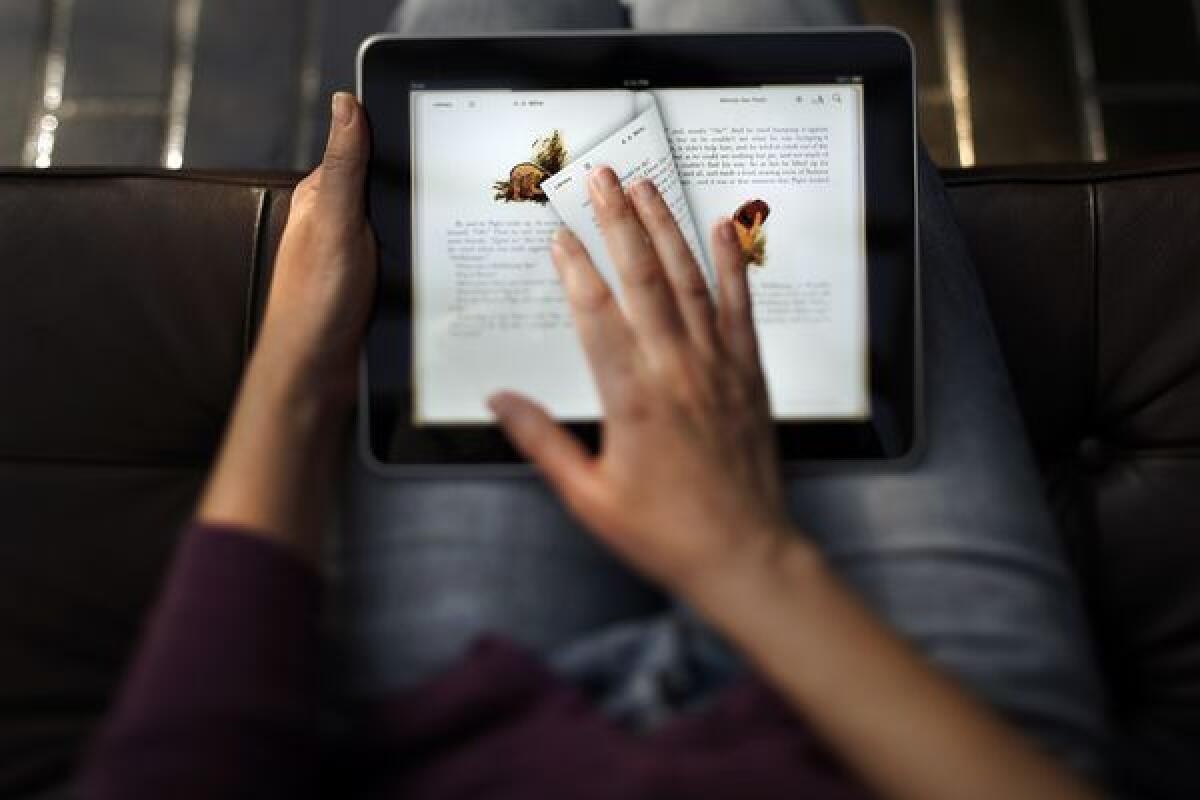E-books price fixing? Book âem

When word leaked that the Justice Department was threatening to sue Apple and five major book publishers for allegedly fixing the price of e-books, the opposition from some tech advocates was swift and sharp. The feds were looking at the wrong problem, these critics said. The new pricing model adopted by Apple and the publishers promoted competition in the markets for e-books, e-book readers and hard-copy books that Amazon had come to dominate. Attacking that model might lower the price for some e-books, but it would hurt the rest of the book industry and give Amazon an inside track to a publishing monopoly.
Thatâs an interesting argument, but itâs irrelevant. The Supreme Court ruled long ago that companies canât fix prices just because theyâre worried they canât survive otherwise. If the Justice Department has evidence that Apple and the five publishers â Macmillan, Simon & Schuster, HarperCollins, Hachette and Pearson â colluded on a plan to raise the price of ebooks, itâs right to seek a remedy.
At issue is the publishersâ decision to stop selling ebooks wholesale to the likes of Amazon and Barnes & Noble and to shift to the âagencyâ approach proposed by Apple. Under the original system, publishers sold ebooks to retailers at about half the cover price and let the retailers determine what to charge consumers for them. Amazon had been selling popular new e-books at a loss â and, to the publishersâ chagrin, at a far lower price than hardback editions â to promote sales of its Kindle reader. The agency model, by contrast, requires retailers to charge the price set by the publisher, while allowing them to keep 30% of the sales revenue.
Appleâs contracts with the publishers also include a âmost favored nationâ clause requiring them to set e-book prices at rival retailers no lower than they are at Appleâs iTunes store. With five of the six largest publishers agreeing to that provision, Appleâs rivals faced a Hobsonâs choice: either adopt the agency model too, or pay a wholesale price for books equal to what Apple was charging the public for them.
Amazon still has the lionâs share of the e-book market, but new outlets are gaining traction. Meanwhile, the Kindle is no longer the presumptive king of the ebook readers, thanks to Appleâs popular iPad and Barnes & Nobleâs Nook. These changes are good for consumers, which leads critics of the Justice Department to ask why itâs scrutinizing the contracts that caused them. But if these changes happened because key players colluded to impose the terms that suit them best, thereâs less competition and benefit for consumers than there would be otherwise. Thatâs just the sort of thing the Justice Department should be investigating.
More to Read
Sign up for The Wild
Weâll help you find the best places to hike, bike and run, as well as the perfect silent spots for meditation and yoga.
You may occasionally receive promotional content from the Los Angeles Times.










